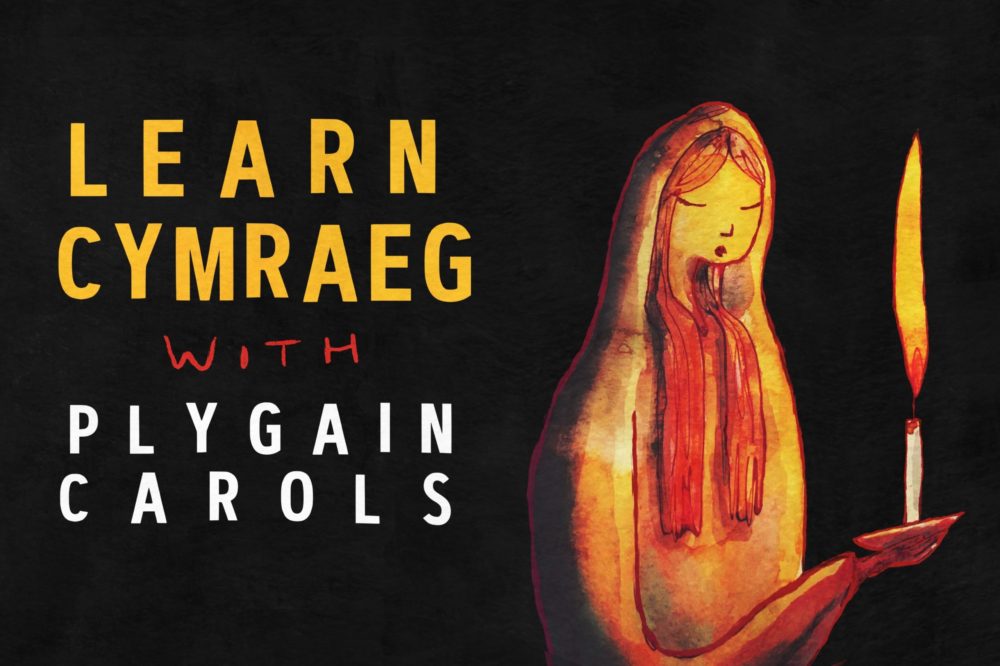Sketchy Welsh: Learn Cymraeg through Plygain Carols

Josh Morgan
It’s hard to take on new Christmas traditions.
Many of our fondest traditions are not based on their virtue but just from the fact that they used to happen in the hallowed, hazy time of childhood. This is especially the case with Christmas songs.
It seems that I have ended up harbouring close affection for songs by bands that I care nothing about and have no intention of listening to outside of December. They just flick a nostalgic switch like nothing else can. You can’t easily replace any of these with anything new just because something is actually good.
That said, as full as my Christmas plate of traditions already is, I am making exception for the Plygain Carols. They are just so wonderful.
Poetry
These carols come from The Plygain (Cockcrow) service tradition that would have been a 3am service on Christmas morning (or night perhaps). They began in 17th Century Cymru as a replacement of missa in callicantu (mass at Cockcrow). They generally involved a short sermon and moved into the main event of various singing performances.
The Plygain carols are beautiful in and of themselves. Especially when delivered in fine harmonic arrangement. They have their own character too. They often cover not just the Birth of Christ but can rarely help themselves talking about events ranging from the start of creation through Old Testament prophets right through the Easter story and into the end of the world.
With this they also tend to take one step further than most English carols in their poetic phrasing (more ‘tearing through the void, raging at his word’ than ‘no cry did he make’). The melodies too often have at least one notable and peculiar twist in them.
It is a strange and gratifying process to have so much fresh ‘old’ material to listen to. And while I of course enjoy a lot of English carols, the Plygains enjoy the fact that Cliff Richard has never sung them. Not once.
I have begun learning a few.
Teg Wawriodd
There is so much in them, and I make particular effort to understand them fully and garner all of the useful and comprehensible Cymraeg that I can from them. Even in some of the more archaic words there is a root that links to something that can help you in every day welsh.
Chwyrnasant drwy’r gwagle for instance, a phrase I enjoyed. Gwagle is void/emptiness but also comes from gwag: empty, or gwagu: to empty something. Chwyrnu also means snore which may come in handy for a few of you.
It does take a while to go through the Plygain carols like this (for a learner especially). With this in mind, I recorded a version playing ‘Teg Wawriodd’ with just a phrase or word form each line pulled out.
Hopefully this is enough to take some Cymraeg away and still enjoy an introduction to the Plygain tradition.
My incessant practicing of them will at least mean that for my children they will be a part of their hazy Christmas nostalgia alongside Wizard and Walnut Whips.
Also, I have recorded another version more cleanly and without any guitar in the way.
This is also available as a free download at www.sketchywelsh.com/blog
Nadolig Llawen,
Josh
Support our Nation today
For the price of a cup of coffee a month you can help us create an independent, not-for-profit, national news service for the people of Wales, by the people of Wales.






Excellent article- Diolch yn fawr – The tradition of Plygain was featured on Radio 3 yesterday as part of a musical tour of Britain.